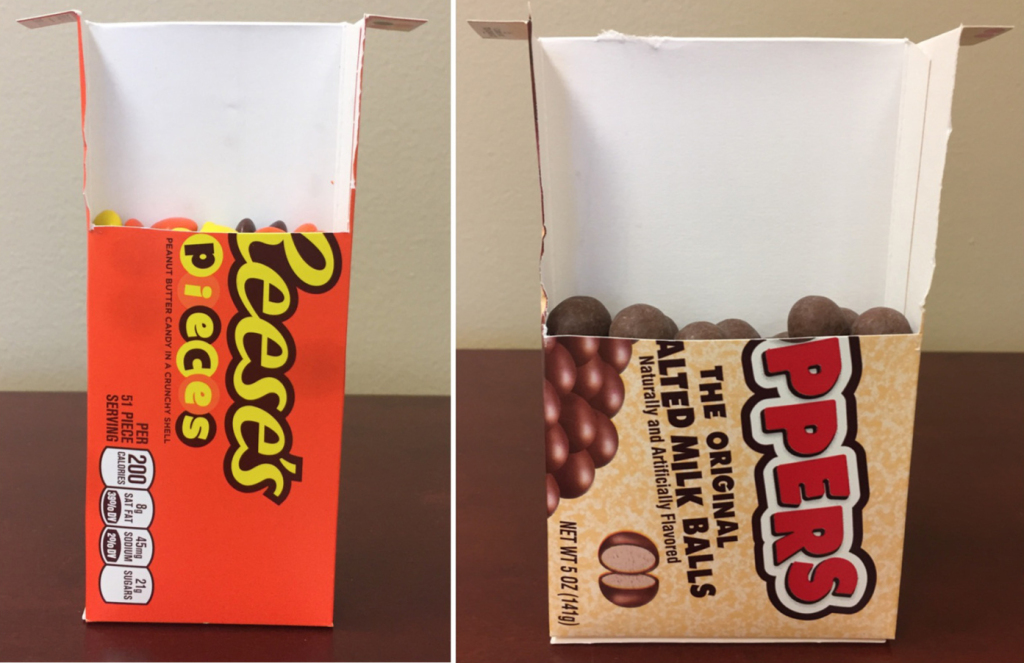Federal Lawsuit Over Under-Filled Whoppers And Reese’s Pieces Boxes Goes Forward
Sure, it’s vaguely annoying that boxes of candy aren’t full all the way to the top, but most people don’t file federal class actions over a lack of peanut butter candies. A man in Missouri has done exactly that, claiming that boxes of Reese’s Pieces and Whoppers that he purchased were dramatically under-filled.
The case is about “slack fill,” which is the empty space in a package. Sometimes this serves a purpose, like the extra air in a bag of cookies or chips that protects the contents. Sometimes it’s produced when the contents of a package settle during shipment.
READ MORE: When Does The Extra Space In Your Potato Chip Bag Go From Annoying To Deceptive?
“Consumers are well aware of the fact that substantially all commercial packaging contains some empty space,” Hershey’s attorneys argued.
Yes, that’s true, but how much empty space is reasonable to protect the product inside without wasting resources on extra packaging?
In his complaint [PDF], the plaintiff accuses Hershey of under-filling the Reese’s box by around 29%, and the Whoppers box by 41% to mislead shoppers and make them believe that the box is more full than it is.
How under-filled is that? The complaint includes handy visual aids.

The extra space isn’t necessary to protect the candy, since both products are also sold in flimsy plastic bags. Why are the boxes so under-filled?
Hershey, of course, doesn’t answer that question. The company sees nothing wrong with this packaging, because the number of candies and the weight are printed right on the outside, and shoppers can pick the box up and feel its weight.
“It is not possible to view the product packaging without also seeing the net weight and quantity disclosures,” the company’s motion to dismiss the case [PDF] argues.
Besides, Hershey argues, an under-filled box of candies rattles. “Any consumer would recognize immediately upon picking up a box of Reese’s Pieces or Whoppers that its contents rattle noticeably and audibly with every movement,” the company notes.
Hershey’s arguments did not persuade the judge, who noted in her opinion [PDF] that cases cited by Hershey’s attorneys did not apply in the state of Missouri, and that such cases often depend on “reasonableness” and what decision the typical shopper would make.
The case was not dismissed. Perhaps Hershey will eventually have to explain what purpose that empty space in the box serves.
(via KCUR)
Want more consumer news? Visit our parent organization, Consumer Reports, for the latest on scams, recalls, and other consumer issues.

